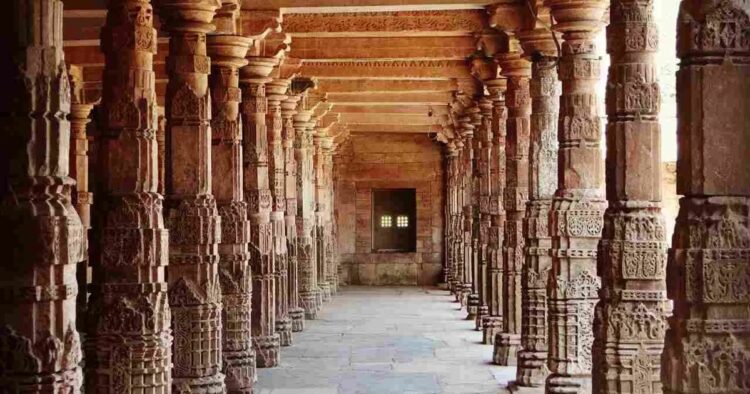In a significant development, the Madhya Pradesh High Court has granted permission for an Archaeological Survey of India (ASI) investigation of the Bhojshala Temple located in Dhar district. The temple, which is claimed to be dedicated to Goddess Vagdevi by Hindus, has been a subject of contention, with the Muslim community also asserting its connection to the site as Kamal Maula Mosque.
Advocate Vishnu Shankar Jain, who had fervently advocated for the ASI survey, expressed satisfaction with the court’s decision. He emphasized the historical significance of the Bhojshala Temple, attributing its construction to Raja Bhoj and lamenting its purported destruction by invaders in the past.
“The High Court has instructed ASI to conduct a thorough survey and present their findings. There exist ample historical records supporting the assertion that the premises in question are indeed a Hindu temple dedicated to Maa Vagdevi,” Jain affirmed in a statement.
Bhojshala Temple, designated as an ASI-protected monument, has been a site of religious observance for both Hindus and Muslims. As per an ASI directive issued on April 7, 2003, Hindus are permitted to worship within the Bhojshala complex every Tuesday, while Muslims are afforded the opportunity to offer namaz on Fridays.
This demand for a scientific investigation into the Bhojshala Temple arises amidst a broader context of similar controversies elsewhere in Bharat. Notably, it comes in the wake of revelations from the ongoing legal battle over the Kashi Vishwanath-Gyanvapi case, where Hindu petitioners’ lawyers claim that an ASI survey suggests the mosque was erected upon the ruins of a pre-existing Hindu temple.
According to Vishnu Shankar Jain, who represents the Hindu petitioners in the Kashi Vishwanath-Gyanvapi case, the court has recently disclosed a comprehensive 839-page report prepared by the ASI. This report purportedly asserts that the mosque adjacent to the Kashi Vishwanath Mandir was constructed atop the remnants of a majestic Hindu temple demolished during the reign of Aurangzeb in the 17th century.
The decision to authorize the ASI survey of the Bhojshala Temple reflects the judiciary’s commitment to resolving contentious disputes concerning religious heritage sites through empirical examination and evidence-based conclusions. As the survey unfolds, it is expected to shed light on the historical and architectural nuances of the temple-mosque complex, providing clarity amidst longstanding debates and facilitating a path towards reconciliation.

















Comments